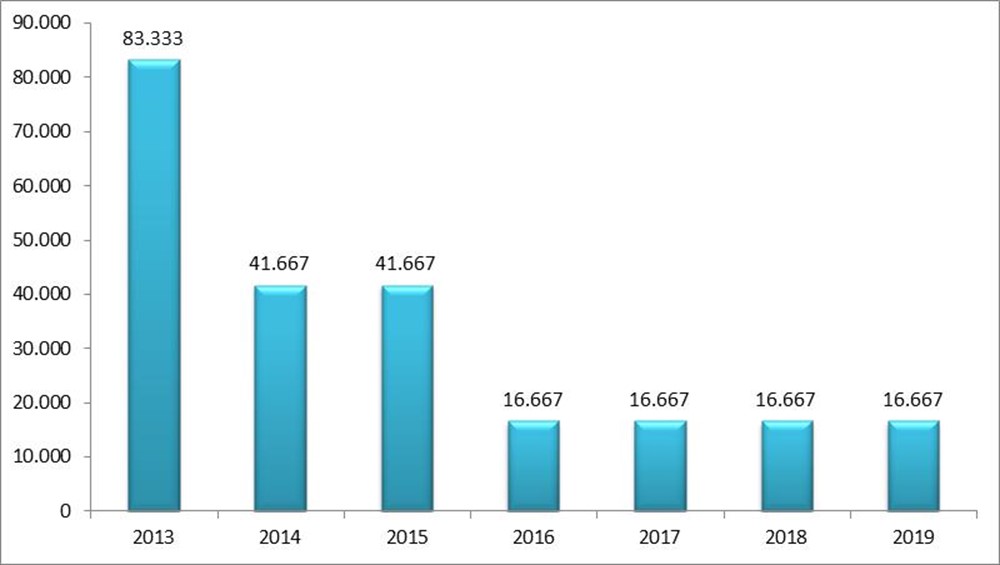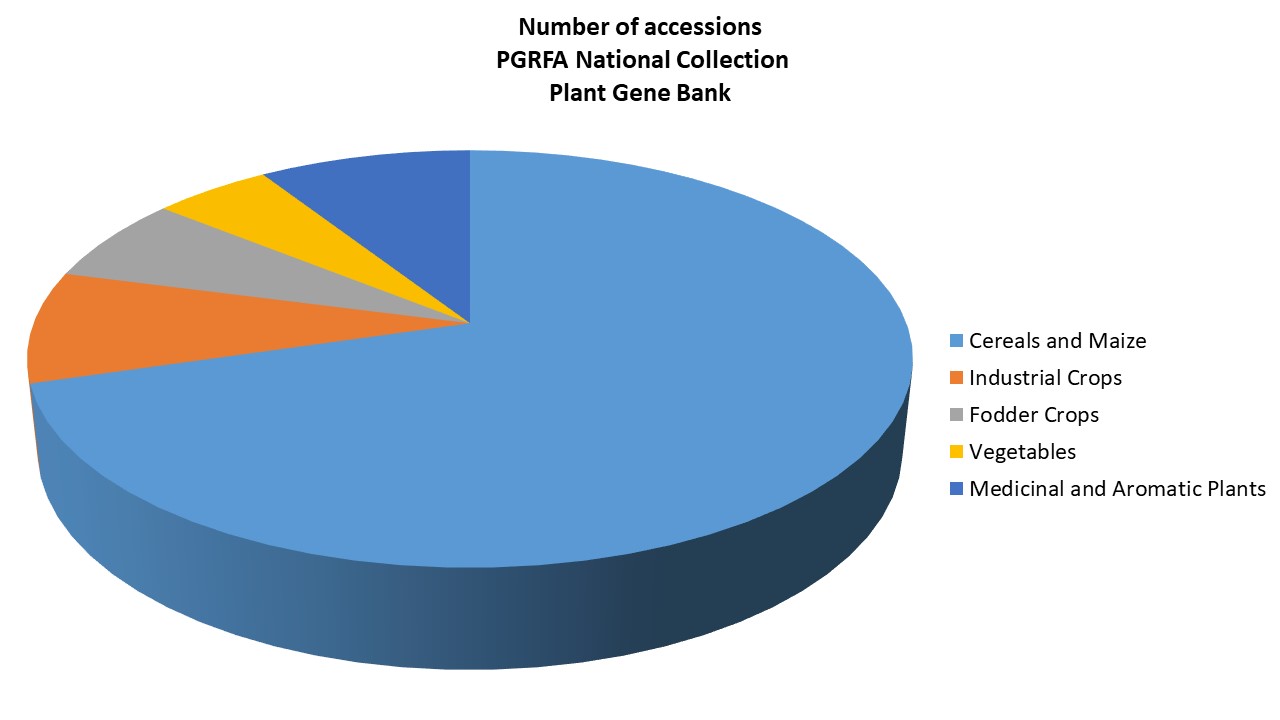Institution/Author: Ministry of agriculture, forestry and water management/Milena Ivanov
Assessment: Plant Gene Bank of Serbia (PGBS) is a facility where samples of plant genetic resources for food and agriculture (PGRFA) are stored in strictly controlled conditions: in the mid-term (on +4ºC, to 20 years) and long-term conditions (-20ºC, over 50 years). The PGBS is an important factor in the management of national conservation of PGRFA. The main task of the PGBS is to preserve the identity and vitality of Serbian PGRFA seed samples. In a broader sense, the PGBS represents promoter, organizer and implementer of PGRFA conservation activities, as well as the national holder of PGRFA management in Serbia. Preservation of plant genetic resources is of utmost importance for the survival of humanity, due to their resistance to stress, disease, pests and weeds. The PGRFA represent natural resources important for human and animal nutrition, as well as for providing raw materials for the industry. The PGRFA of Serbia consists of: local population, genotypes, old and new varieties of grain, forage and industrial plants, vegetables, medicinal, aromatic and other horticultural plants, fruit trees and vines, their wild relatives, as well as plant breeding material with real or potential value for agriculture.
In addition to keeping the National Collection of seeds from cultivated plants, as well as the organising preservation of planting material of fruits and vines, the PGBS conducts registration of seed samples, their cleaning, drying, packaging, storage and maintenance; organises multiplication and regeneration of samples, and the exchange of samples with other gene banks; maintains a database on plant genetic resources; cooperates with scientific research institutions and other gene banks at the national, regional, European and global level. It is of great importance to ensure a high level of preservation, protection and sustainable use of PGRFA, and also to determine the framework of access to PGRFA and the exchange of knowledge and related technologies. Since PGBS facilities were not completed and put into operation for many years, in the period 2000-2015 the Serbian government entrusted the Maize Institute “Zemun Polje” to keep the National Collection. On 1 April 2015, when all the necessary technical conditions were finalised, seed samples of National Collection were transferred and stored in the cold rooms of the PGBS in Batajnica, under the Directorate for National Reference Laboratories, Ministry of Agriculture, Forestry and Water Management. After this transfer, the work of PGBS was activated after 25 years since the complex of the Plant Gene Bank of Yugoslavia was built.
For many years, PGBS had an obvious lack of professional research staff, since it works under the auspices of state administration, which is not common in other countries in the region and Europe. Currently, the jurisdiction of the PGBS are PGRFA management and PGRFA conservation, is under two laws: Law on Ministries and the Law on Food Safety. In total, 4,238 samples are kept in the collection of the PGBS: grain and maize 2,985 samples, medicinal and aromatic herbs 387, industrial plants 367, fodder plants 284, and vegetables 215. It is particularly important to preserve traditional knowledge and skills related to the sustainable use of plant genetic resources owned by farmers. Given that farmers play active role in the in-situ and on-farm preservation of plant genetic resources, since 2013, the Ministry of Agriculture, Forestry and Water Management allocates certain financial resources for subsidies in PGRFA conservation (“Official Gazette of RS” No. 85/13). The number of accessions to PGRFA National Collection Plant Gene Bank, Cereals and Maize, Industrial Crops, Fodder Crops, Vegetables, National policy on the preservation and sustainable use of agricultural plant genetic resources, is presented in the new Law on PGRFA Management and the National PGRFA Conservation Programme, both currently in final draft versions.
The importance and transparency of the management and use of PGRFA in Serbia strongly depend on the new legislation. Research institutes, faculties, private sector, other organisations and stakeholders, as well as farmers, are all expected to take part in responsibility for the implementation of the Law on PGRFA Management, after its adoption. The number of strategic documents on agriculture and rural development, nature management, biodiversity and environment protection, all related to PGRFA, are already adopted and implemented. The Agriculture and Rural Development Strategy and Biodiversity Strategy show that a large number of Biodiversity Policy commitments will be implemented, concentrating on relevant national and international aspects. Serbia participates in all relevant international instruments for the PGRFA conservation, and believes that international obligations in terms of agriculture and biodiversity are mutually supportive.
Picture 1: Subsidies for PGRFA conservation by years (EUR)
Picture 2: The number of samples of plant genetic resources for food and agriculture in the collection of the PGBS